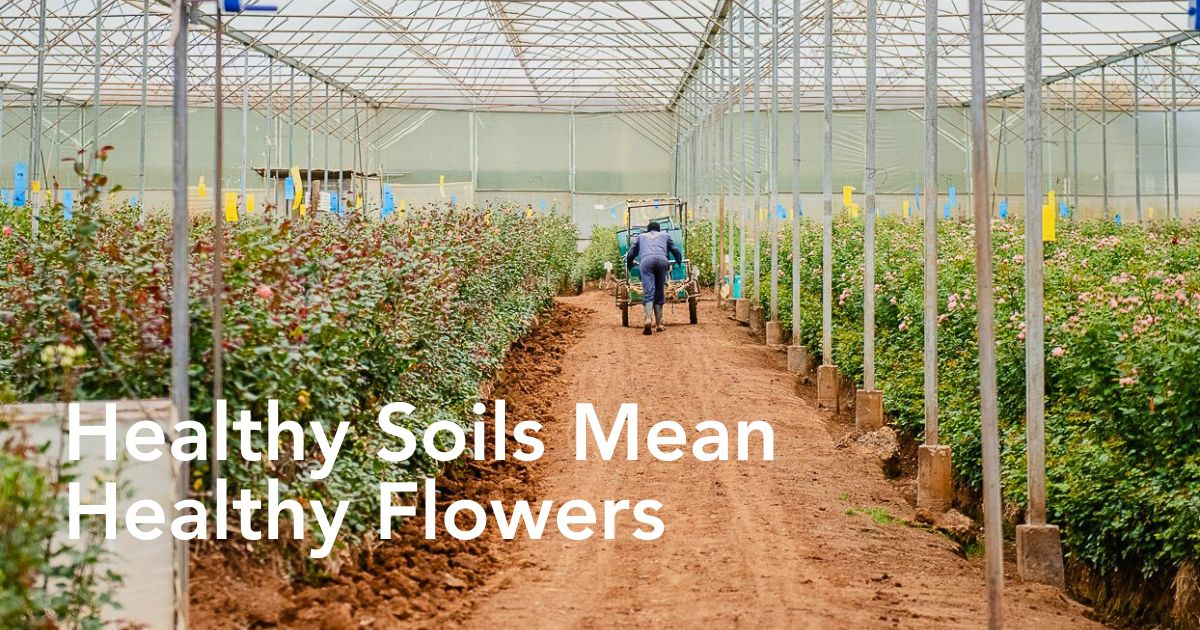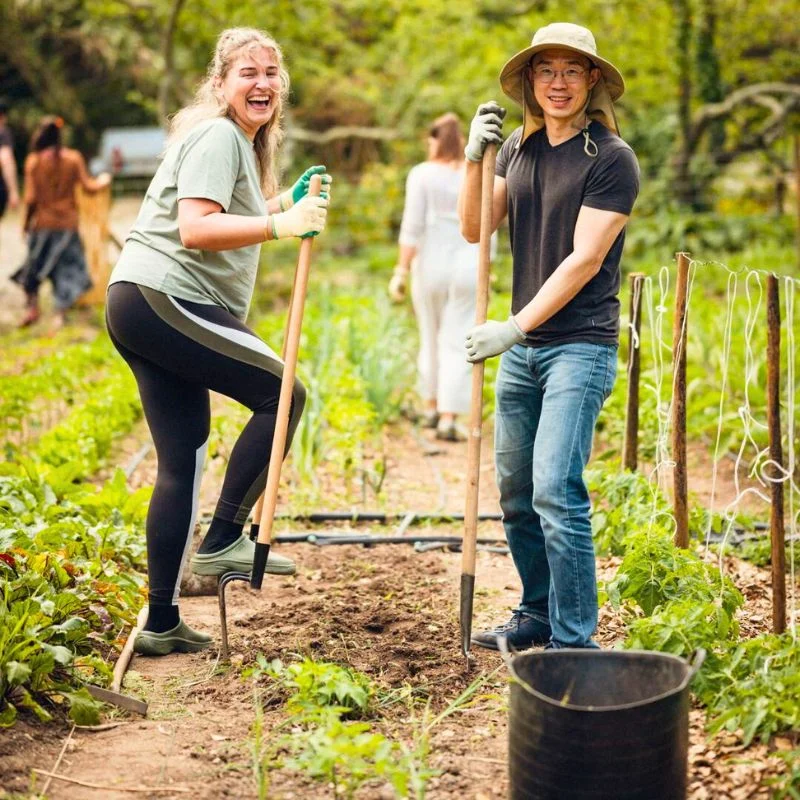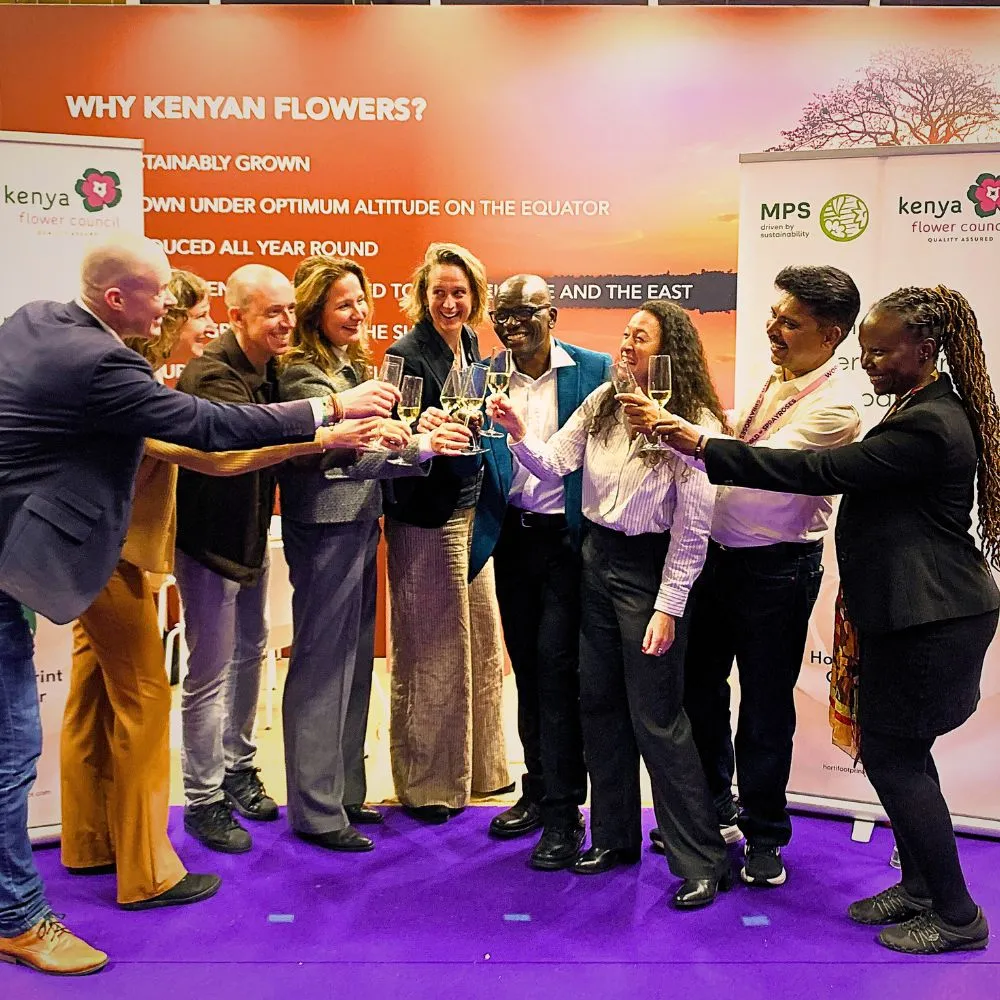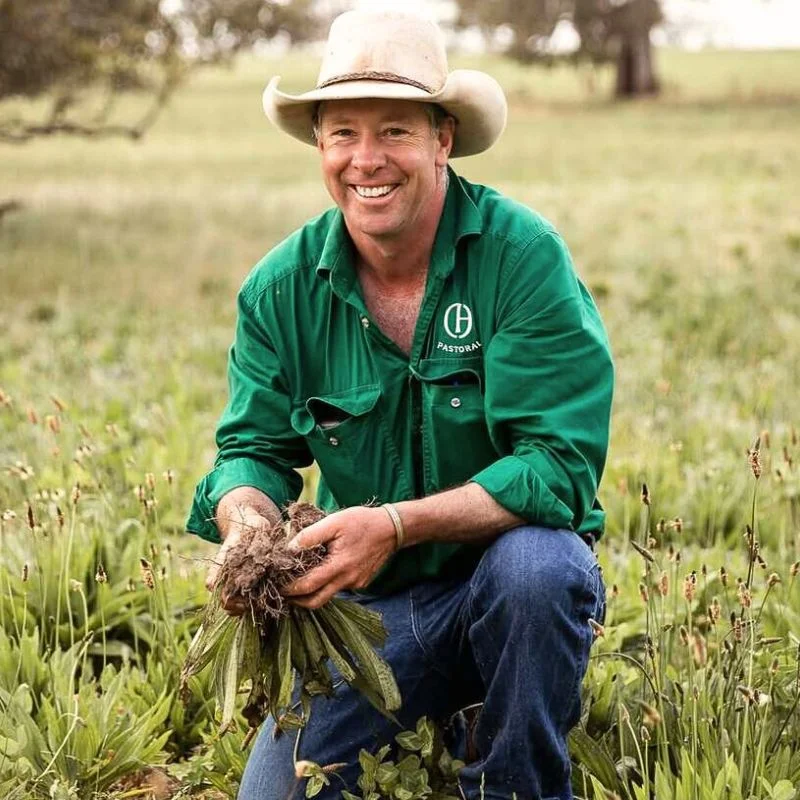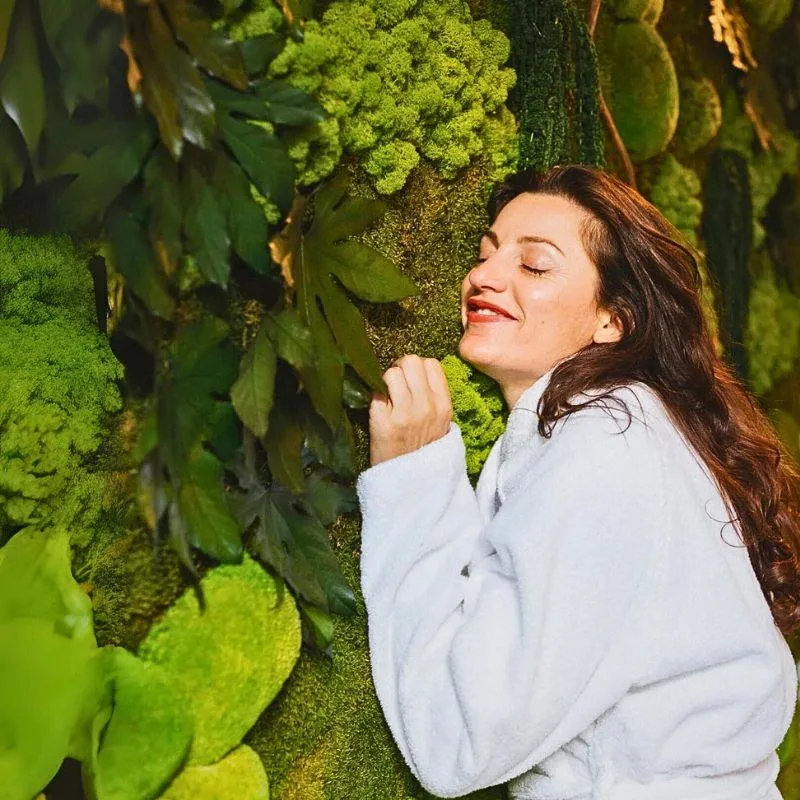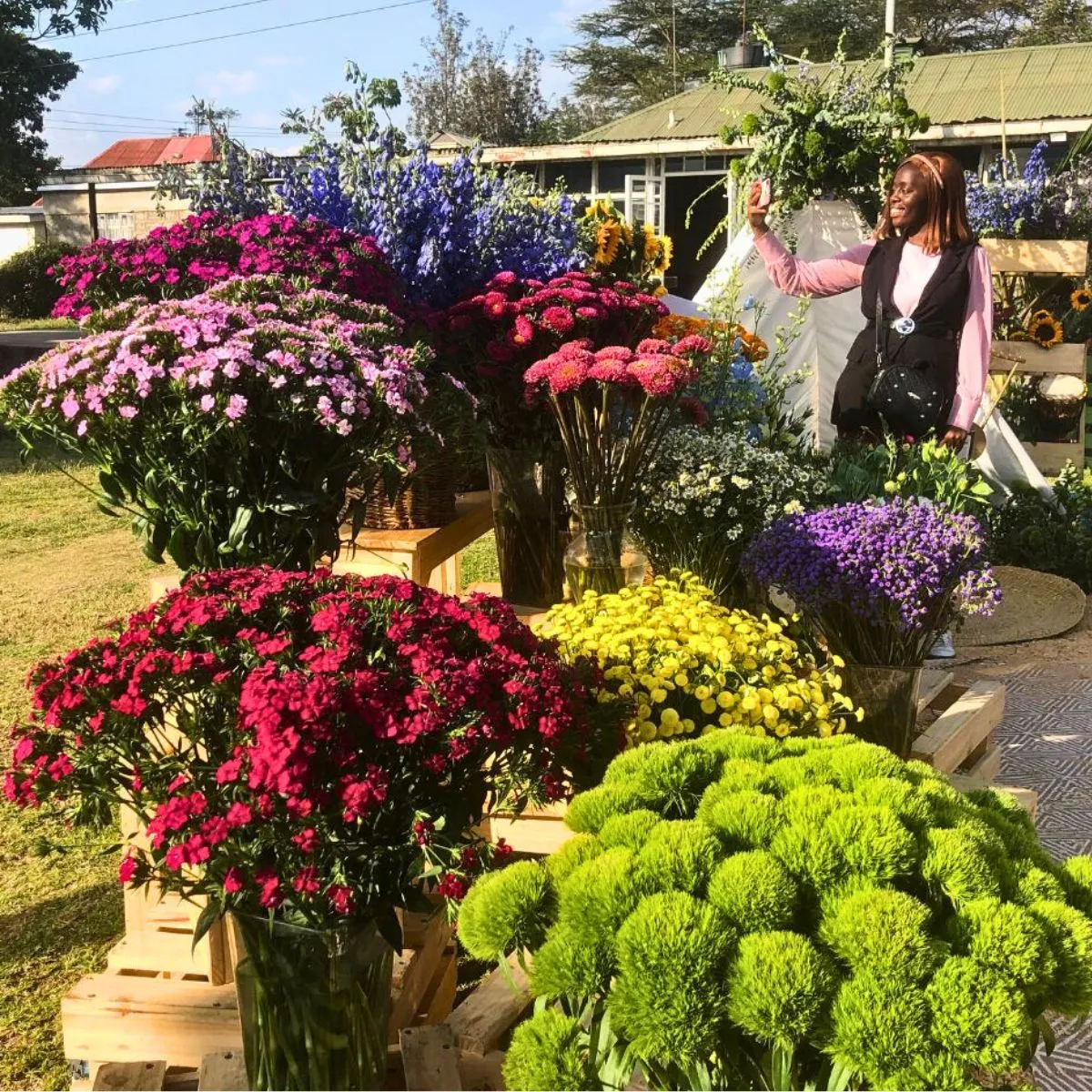Perhaps you just know Tambuzi, the Kenyan grower based in Nanyuki—right at the foothills of Mount Kenya—for their high-quality, naturally scented garden roses, renowned for their generous size, rich color, and charming fragrance. And of course, the fact that this grower is a certified B Corp flower farm. But did you know that Tambuzi also has some of the best soil health practices?
During the last edition of the Pinnacle Sustainability Awards, organized by the Kenya Flower Council (KFC), Tambuzi received a recognition that says quite a lot about their sustainable flower cultivation. The rose farm was recognized for its Best Soil Health Management. This achievement showed that the grower does not just focus on producing beautiful, scented roses, but also on protecting the soil upon which they farm their flowers. Here’s how they do it.
Growing Flowers in Harmony With Nature
For starters, for Tambuzi, this recognition puts in a nutshell and certifies their years of sustainable work steered by the principle of protecting and continually improving soil health for the benefit of the people, the planet, and profit. As a KFC Gold Standard farm, Tambuzi has been keen on showing that sustainability is hardly just a catchword thrown around, but a practical approach to flower farming that yields results that everyone can see.
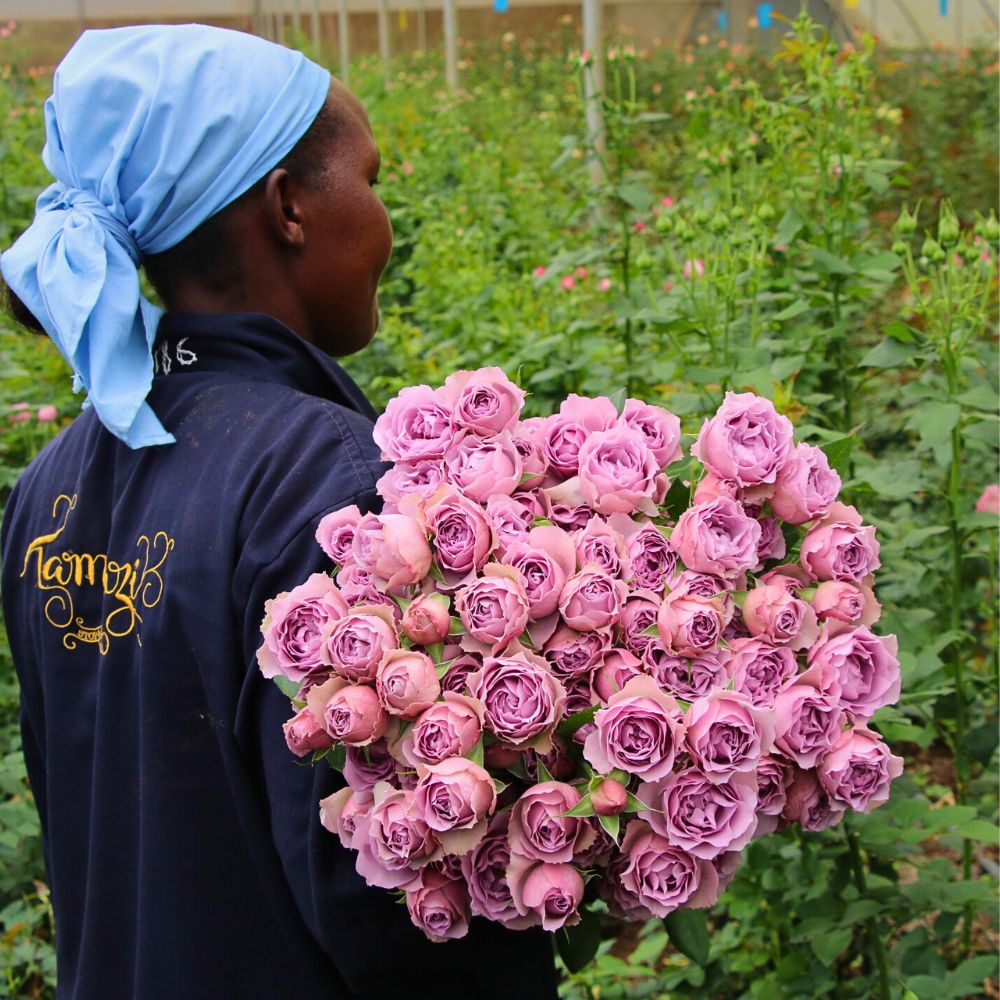
Their recognition, according to Christine Shikuku, the General Manager, shows how the flower farm’s sustainable approach to growing flowers not only produces world-class David Austin Roses, Tambuzi Garden Roses, Tambuzi Scented Roses, Tambuzi Spray Roses, Floribunda, and floral herbs and foliage, but also restores and enriches the soil.
Christine Shikuku:
“Essentially, it is all because we are committed to leaving the land better than we found it. This proves how sustainability and profitability can go hand in hand."
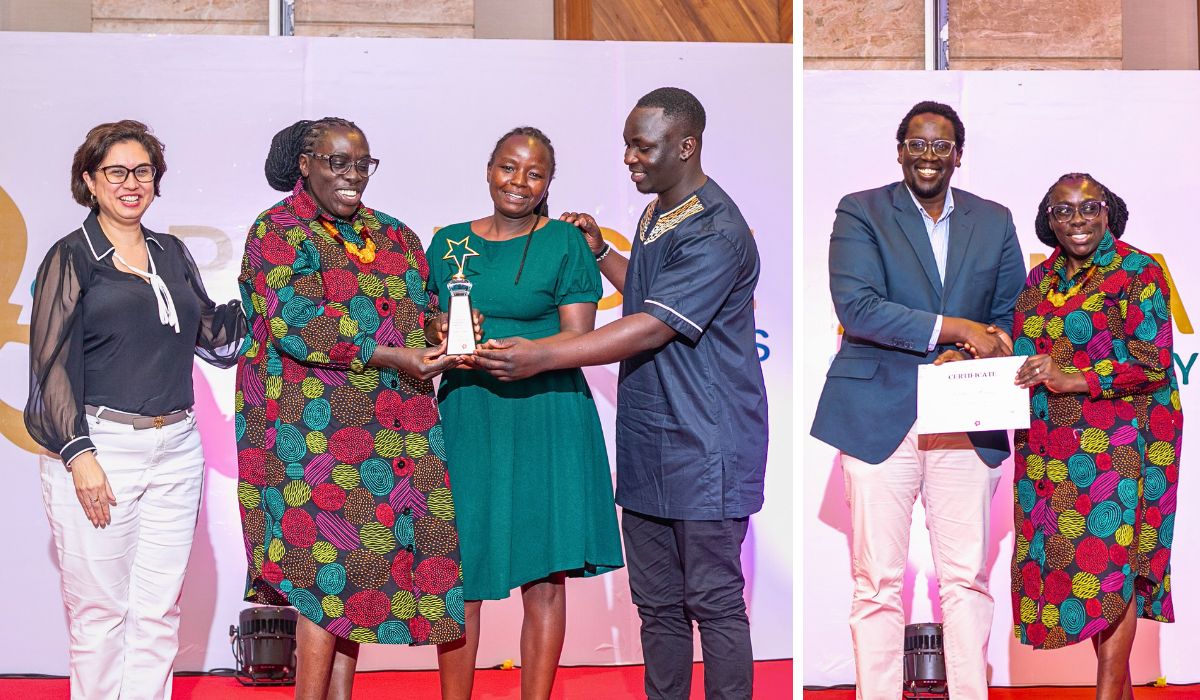
Innovative Regenerative Practices
So what are the sustainable and regenerative practices that have made Tambuzi’s comprehensive approach so notable? For them, it goes beyond traditional farming practices. The grower has implemented several innovative ideas that have seen it transform the waste from its flower production processes into wealth while building robust and healthy soils.
Vermiculture composting is one of those. Here, red wriggler worms work to recycle rose waste into nutrient-rich compost and ‘worm tea.’ This natural process creates healthy living soils teeming with beneficial microorganisms that support healthy plant growth. Another of their innovative ideas is biochar production, which turns rose by-products into carbon-rich soil conditioners.
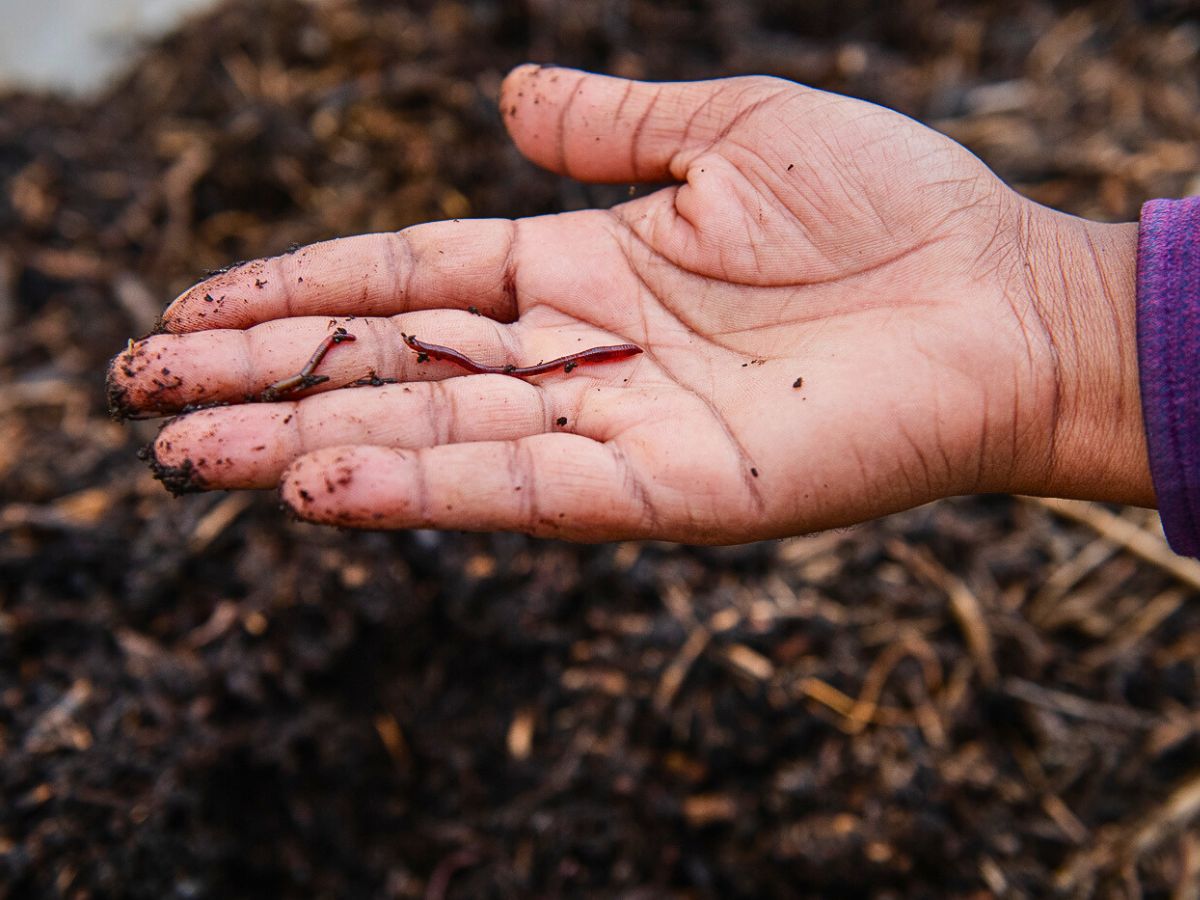
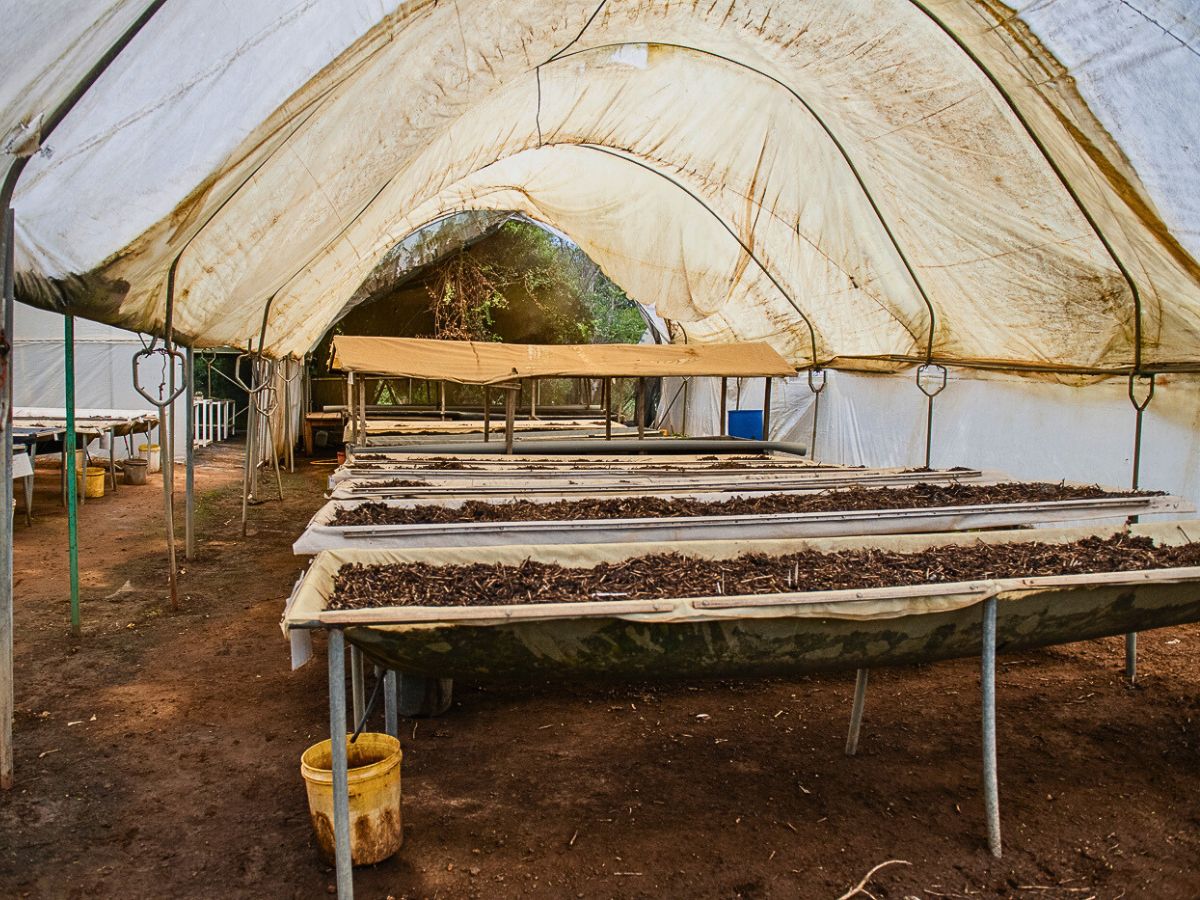
This material does not just improve soil fertility, but also actively sequesters carbon, helping the farm fight climate change while enhancing growing conditions. The biochar acts like a sponge in the soil, retaining moisture and nutrients that would otherwise be lost.
Tambuzi has also embraced black soldier fly larvae frass as a natural fertilizer. Converting organic waste into this nutrient-dense amendment means the farm boosts plant health, reduces reliance on synthetic chemicals, and diverts significant amounts of waste from landfills. It is a perfect example of circular economy principles in action.
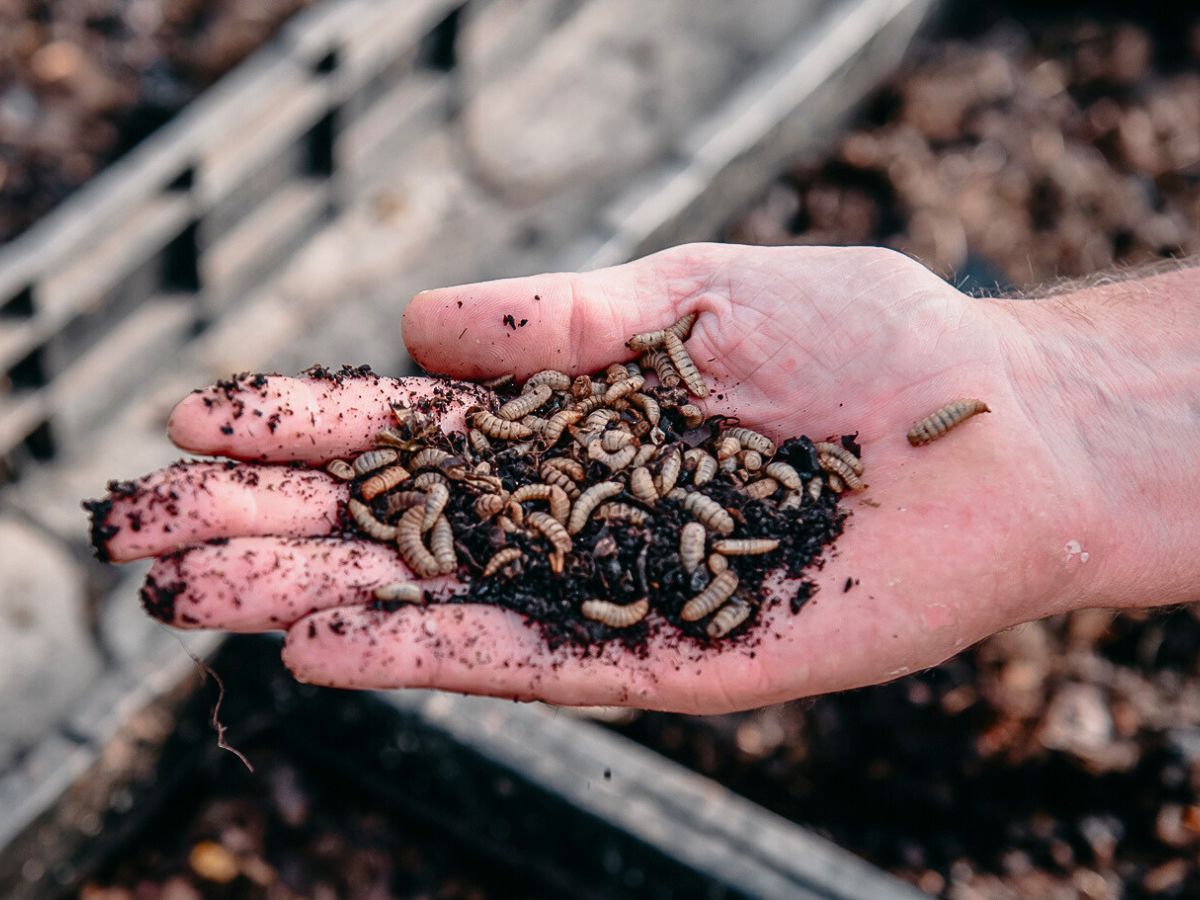
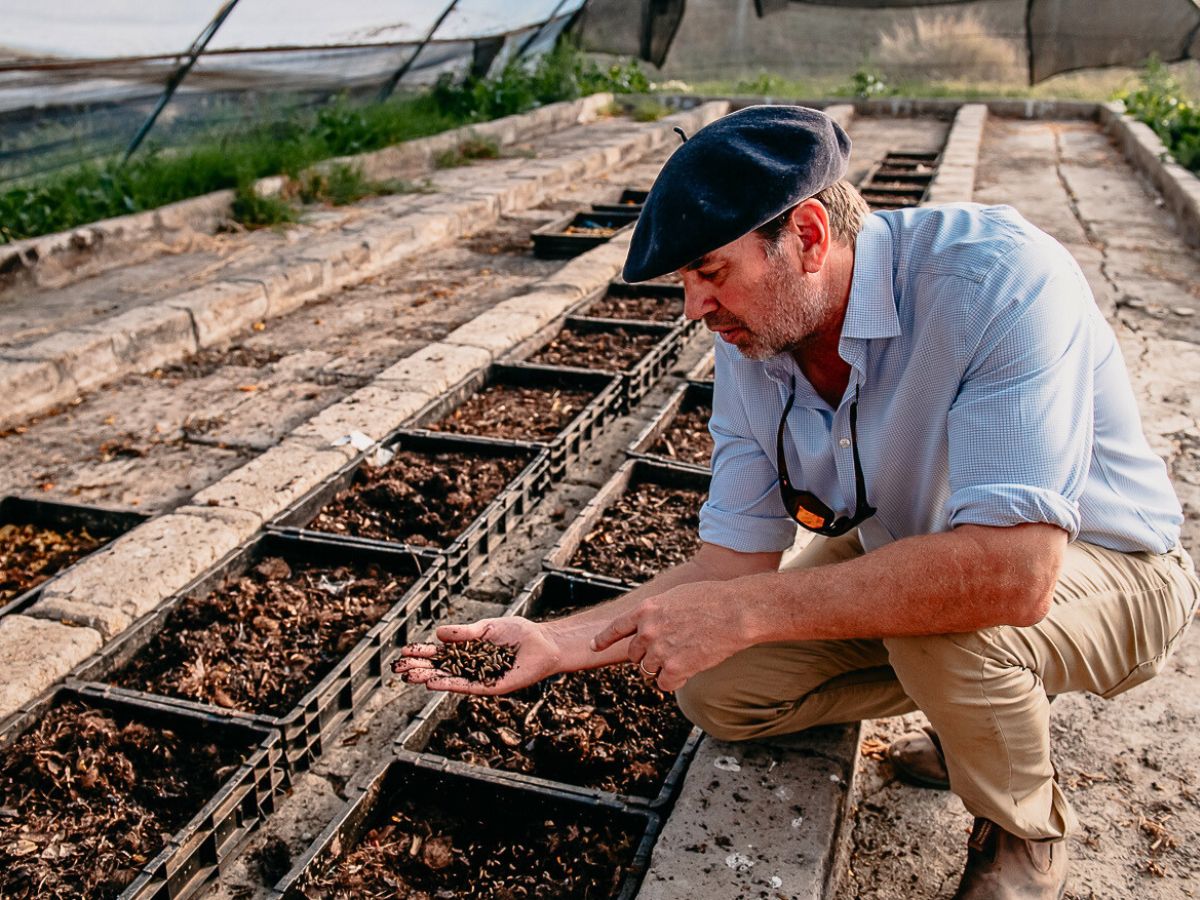
These cutting-edge techniques are complemented by more traditionally established sustainable practices, including organic composting, mulching, bio-fertilizers, and the use of sustainable manure and biogas slurry. Together, they enhance soil structure, retain moisture, reduce erosion, and ensure nutrients are continuously recycled within the farm, minimizing reliance on synthetic inputs.
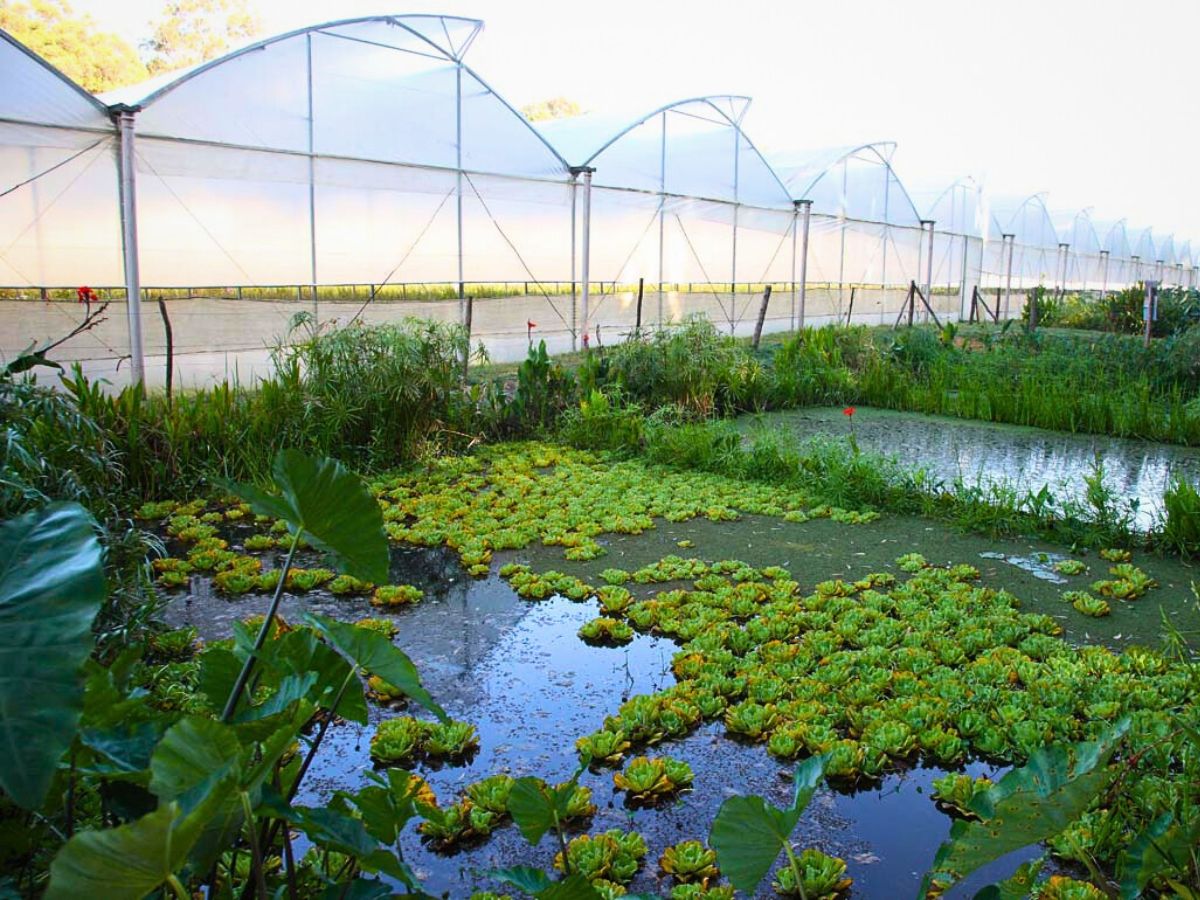
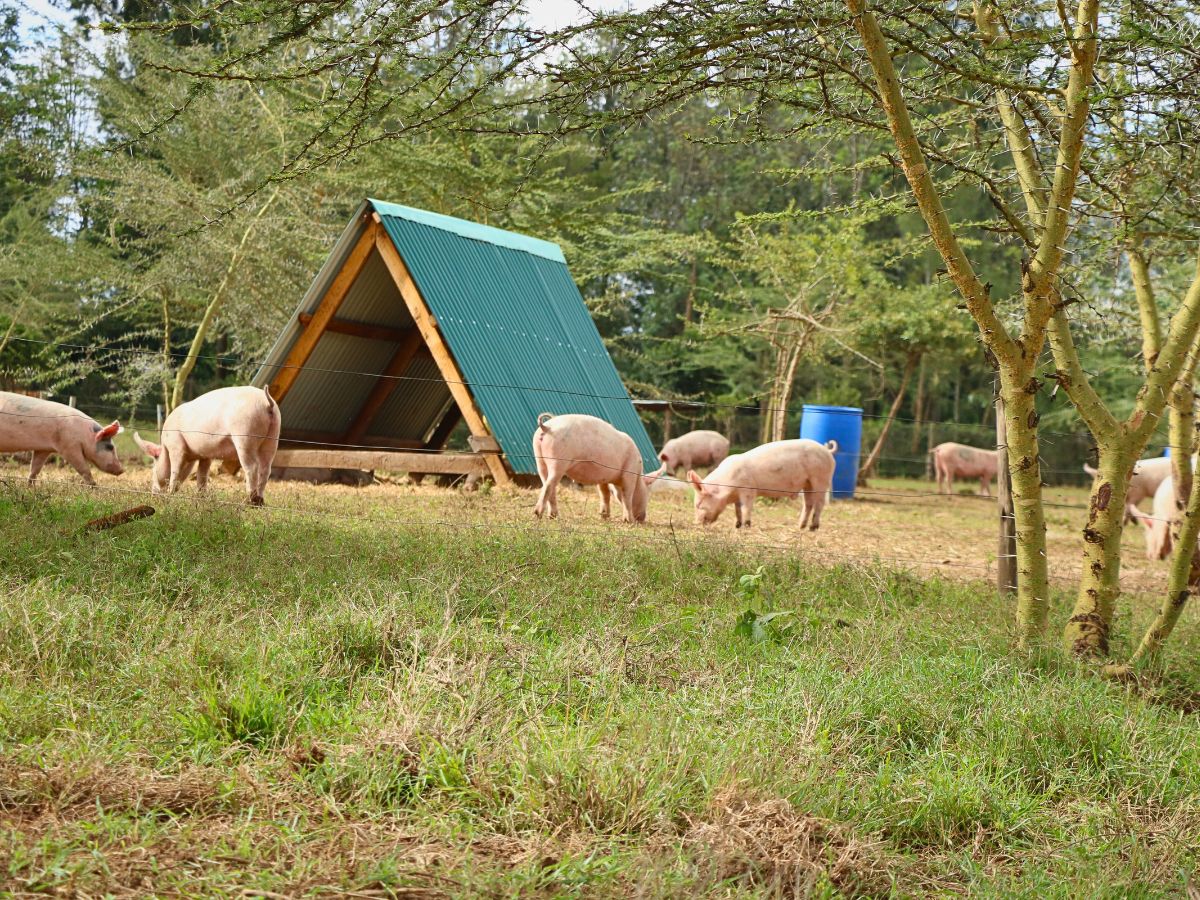
What Have the Impacts Been?
The proof, as they say, is in the pudding—or in this case, in the soil. Tambuzi's regenerative practices have delivered significant results that show the business case for sustainability. The farm has achieved increased yields, significantly reduced its use of inorganic fertilizers, improved soil organic matter content, and documented substantial carbon sequestration. Of course, there have been awards and recognitions as well. All these show that caring for the soil, the earth, and running a profitable business are not mutually exclusive goals.
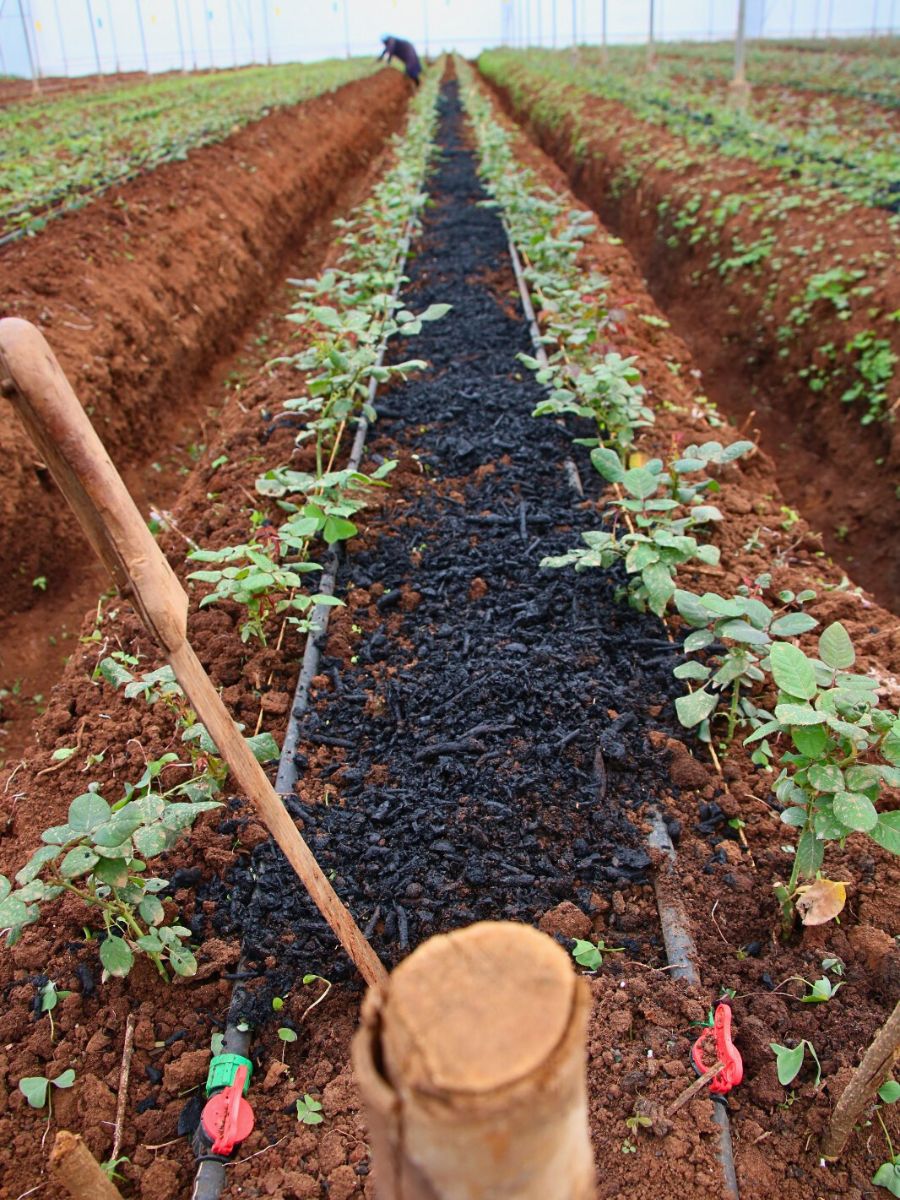
Some Background and Sustainability Recognitions Even Outside Borders
Founded in 1996 by Tim and Maggie Hobbs, Tambuzi has grown from a beautiful, derelict dairy and beef farm into a 64-hectare specialist supplier of traditional garden-scented roses. But it has been more than just about commercial success for this purpose-driven, carbon-neutral rose farm. With their simple goal of growing the finest scented garden roses—because beauty is worth striving for—Tambuzi are, practically, the accomplished leaders in the scented rose production field in Kenya.
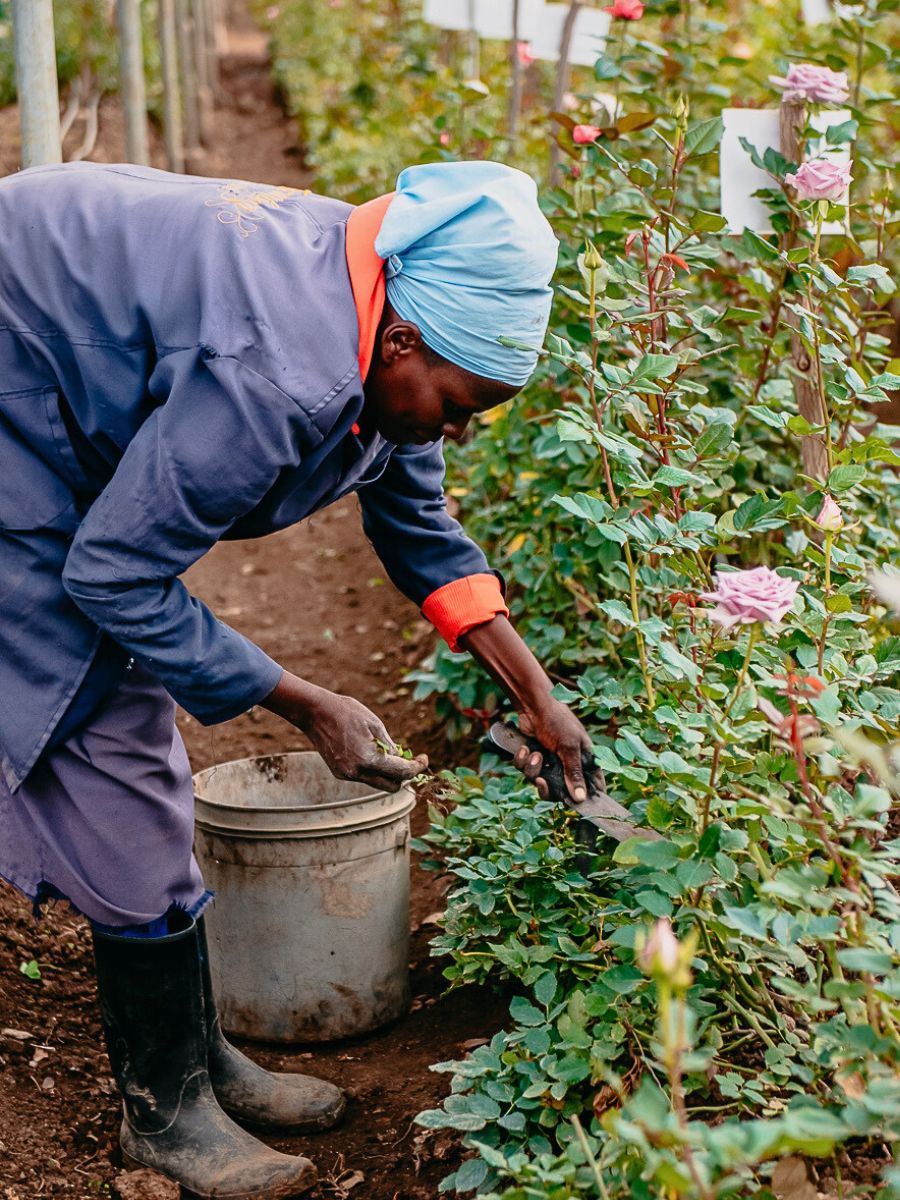
The grower has 25 hectares of roses and summer flowers at their original Burguret site, and complementary production of sustainable forestry, beekeeping, and livestock. Recently, they expanded by two more farms in Timau to meet the demand for their high-quality flowers. The three Tambuzi farms, located 180km north of Nairobi, fall within Kenya’s Nyeri, Laikipia, and Meru Counties.
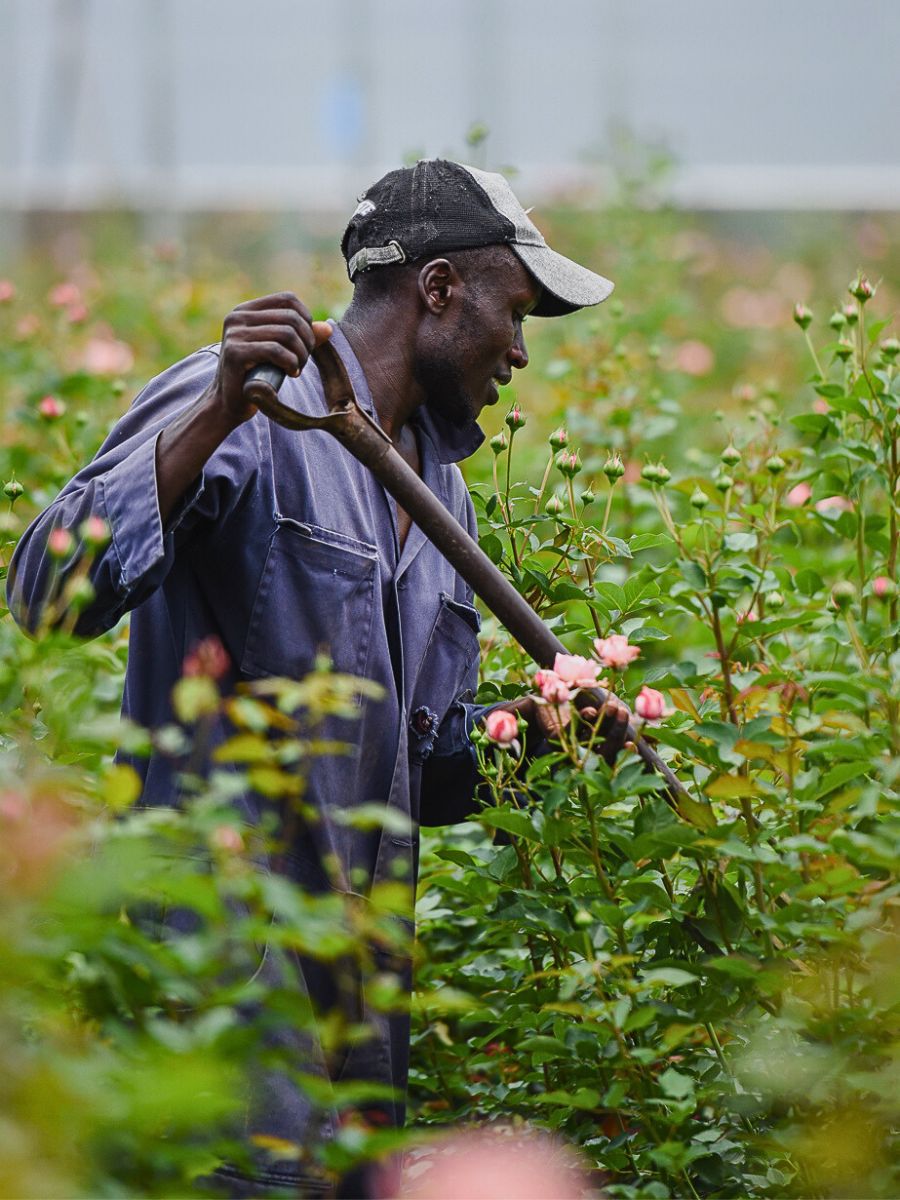
While their location near the equator at roughly 1,900 meters above sea level provides perfect growing conditions, it is the values behind their operations that make them exceptional. Their B Corp certification means they meet rigorous standards of social and environmental performance, accountability, and transparency. They were also the first flower farm in the world to achieve Carbon Neutral Gold Standard status and the first Kenyan organization to sign the UN Climate Neutral Now Initiative pledge. As noted earlier, Tambuzi also holds the KFC Gold Standard certification, the highest in Kenyan flower growing.
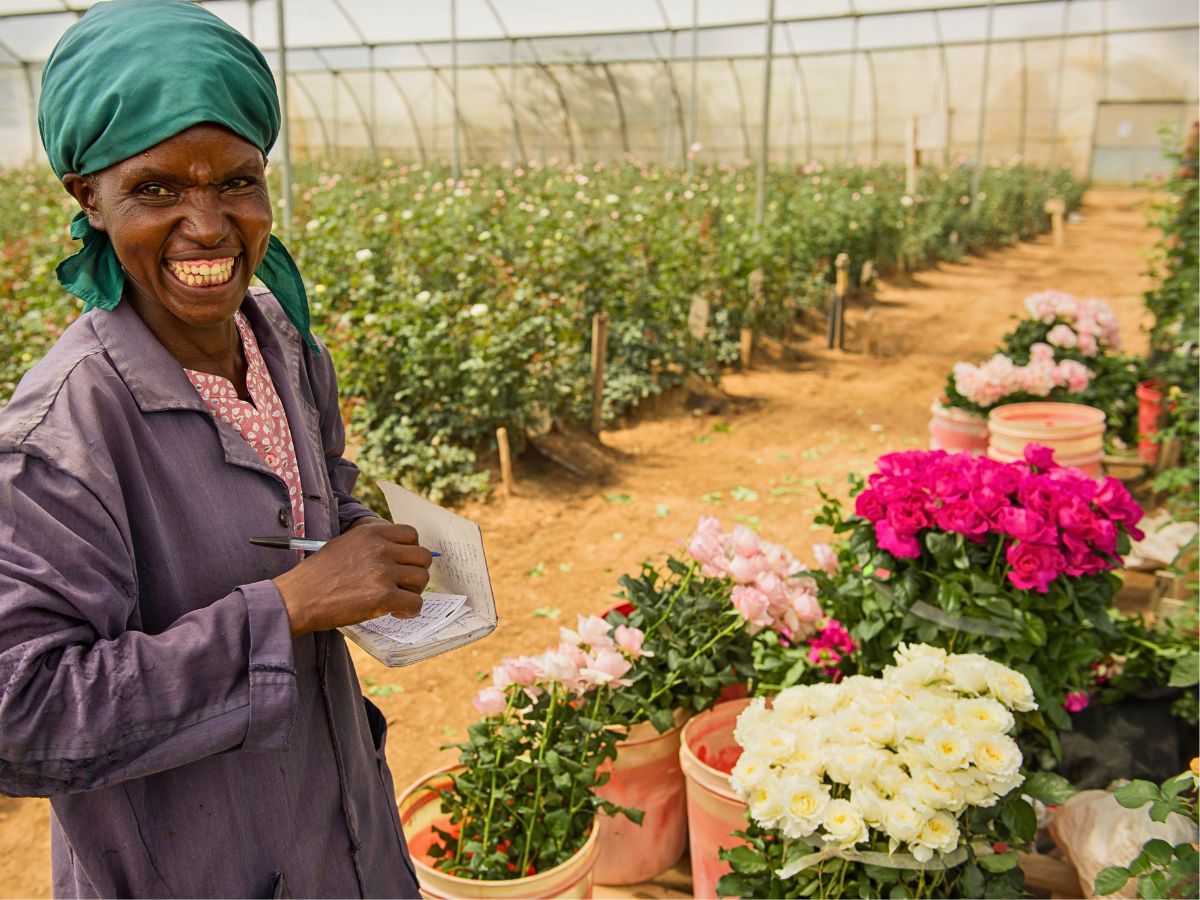
Their accolades still keep coming. Tambuzi was recently shortlisted as a nominee for the 2025 Dutch Flower Awards in the Foreign Suppliers category. Announced by the Dutch Flower Group, this year's awards theme is ‘IMPACT – Building sustainable impact together,’ which is perfectly in line with Tambuzi's ideals.
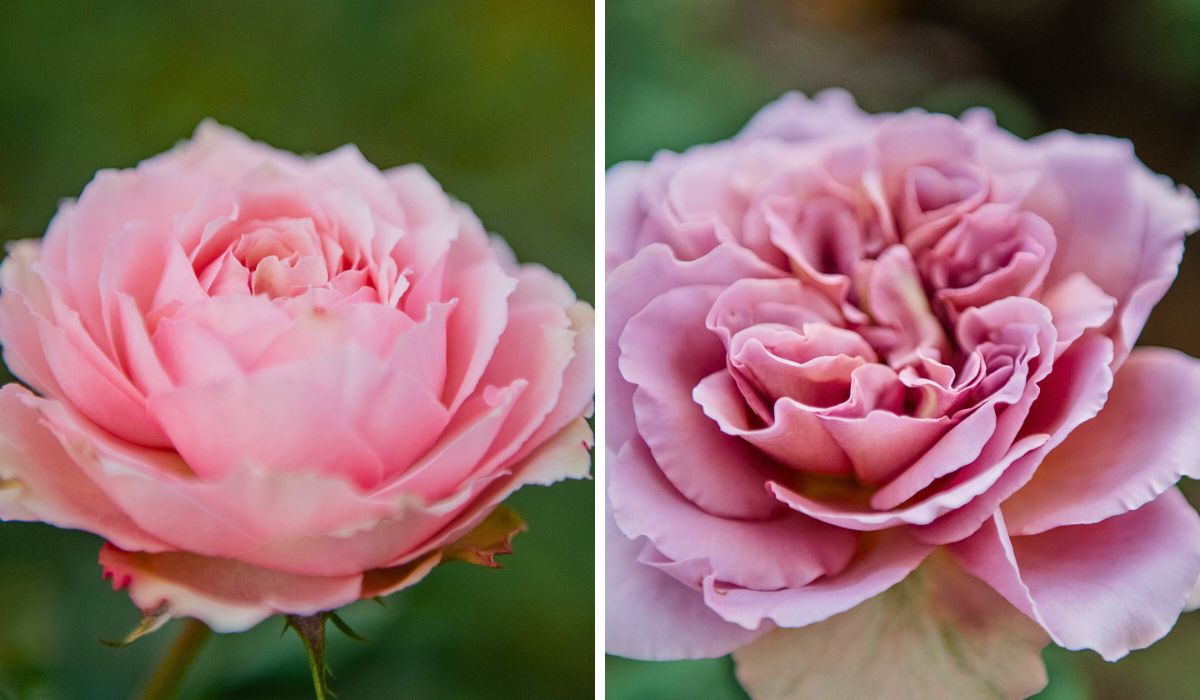
The winners will be announced during the RFH Trade Fair in Aalsmeer on November 5th, in a competition alongside other international suppliers who exemplify sustainable practices. In all these, Tambuzi's success shows just part of the sustainable practices happening within Kenya's floriculture scene. It shows how Kenyan growers are upping their eco-friendly floriculture practices.
Photos by Leonie Jansen for Tambuzi Roses.

